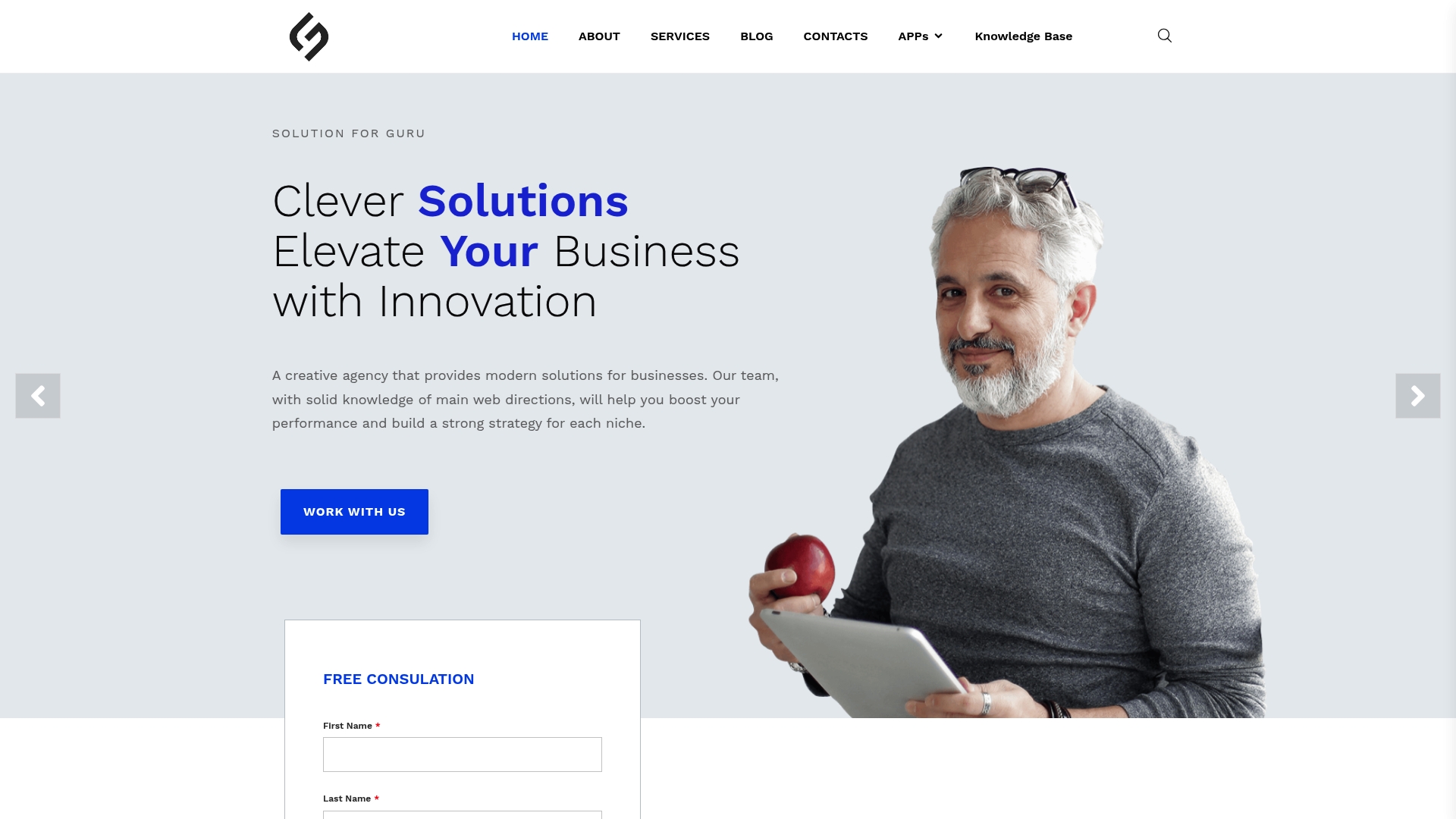7 Top Digital Marketing Channels for Business Growth

SEO, social media, email campaigns—every business fights to stand out online. Yet with all the buzz about digital tactics, most people miss just how powerful the numbers really are. Businesses using paid search ads can boost page views by up to 25 percent and email marketing can increase subscriber retention by over 7 percent. This kind of impact does not happen by accident. There are simple moves any brand can make to unlock real results.
Table of Contents
- Understanding Seo And Its Importance
- Harnessing The Power Of Social Media Marketing
- Leveraging Email Marketing For Customer Engagement
- Utilizing Content Marketing To Attract Audience
- Exploring Paid Advertising: Ppc And Display Ads
- Implementing Affiliate Marketing Strategies
- Analyzing Data With Analytics Tools
Quick Summary
| Takeaway | Explanation |
|---|---|
| SEO enhances online visibility. | Strong search engine optimization increases your website’s rankings, driving organic traffic and credibility. |
| Social media requires strategic planning. | Effective marketing on social platforms demands understanding audience behavior and consistent, engaging content. |
| Email marketing needs personalization. | Tailored content enhances engagement, making emails more relevant and increasing customer retention rates. |
| Content marketing builds brand authority. | Valuable, relevant content attracts and engages audiences, fostering trust and establishing your brand’s voice. |
| Data analytics drives targeted marketing. | Analyzing customer behavior allows businesses to optimize strategies and enhance overall marketing effectiveness. |
1: Understanding SEO and Its Importance
Search Engine Optimization (SEO) represents a critical digital marketing strategy that helps businesses enhance their online visibility and attract targeted organic traffic. According to research published in the National Institutes of Health, SEO strategies directly influence a website’s prominence in search engine results and play a significant role in customer acquisition.
At its core, SEO involves optimizing digital content to rank higher in search engine results pages (SERPs) for specific keywords and phrases relevant to a business’s products or services. This process requires a comprehensive approach that addresses multiple aspects of online presence.
Key components of effective SEO include:
-
Keyword Research: Identifying and targeting search terms potential customers use
-
Content Optimization: Creating high-quality, relevant content that matches user search intent
-
Technical Website Performance: Ensuring fast loading speeds, mobile responsiveness, and clean site architecture
-
Link Building: Developing authoritative backlinks from reputable websites
Businesses investing in SEO can experience substantial benefits. Organic search remains a primary method for users discovering new products and services. By appearing on the first page of search results, companies increase their credibility and visibility, potentially driving significant website traffic without the recurring costs associated with paid advertising.
Learn more about our digital marketing strategies that can help you maximize your online presence and growth potential. Implementing a strategic SEO approach requires continuous monitoring, adaptation, and refinement to stay competitive in the ever-evolving digital landscape.
2: Harnessing the Power of Social Media Marketing
Social media marketing has transformed how businesses connect with audiences, offering unprecedented opportunities for brand engagement and growth. According to research by the Center for Marketing Research, 87% of successful companies actively utilize platforms like Facebook and Twitter to communicate and add value for customers.
Modern social media marketing extends far beyond simple posting. It requires strategic planning and a deep understanding of platform dynamics, audience behaviors, and content effectiveness. Businesses must approach social media as a comprehensive communication channel that demands consistent, targeted effort.
Key strategic elements of successful social media marketing include:
-
Audience Targeting: Understanding demographic characteristics and online behaviors
-
Content Diversity: Creating engaging multimedia content that resonates with specific audience segments
-
Consistent Brand Messaging: Maintaining a uniform voice and visual identity across platforms
-
Performance Analytics: Tracking engagement metrics to refine marketing approaches
Effective social media strategies involve more than basic engagement. Companies must develop nuanced approaches that align with broader marketing objectives. This means creating content that not only attracts attention but also drives meaningful interactions and potential conversions.
Explore our comprehensive social media management guide to understand how sophisticated digital strategies can elevate your brand’s online presence. By implementing thoughtful, data-driven social media marketing techniques, businesses can build stronger connections, enhance brand visibility, and create sustainable growth pathways in the digital marketplace.
3: Leveraging Email Marketing for Customer Engagement
Email marketing continues to be a powerful digital marketing channel, offering businesses a direct and personalized communication pathway with their audience. According to research analyzing promotional email strategies, strategic email engagement can increase subscriber retention by over 7% and significantly reduce customer churn.
Effective email marketing goes beyond sending generic newsletters. It requires a sophisticated approach that combines data-driven insights, personalization, and strategic content design. Modern businesses must view email as a nuanced communication tool that can nurture customer relationships, drive conversions, and provide measurable marketing outcomes.
Key components of successful email marketing include:
-
Segmentation: Dividing email lists based on customer behaviors, preferences, and demographics
-
Personalization: Crafting targeted content that speaks directly to individual subscriber interests
-
Automation: Implementing triggered email sequences based on specific customer actions
-
Performance Tracking: Monitoring metrics like open rates, click-through rates, and conversion data
The most successful email marketing strategies recognize that subscribers seek value in every communication. This means developing content that is informative, engaging, and relevant to the recipient’s specific needs and interests. Companies must balance frequency and quality, ensuring that each email serves a clear purpose without overwhelming the audience.
Discover advanced email marketing strategies that can transform your digital communication approach. By implementing a thoughtful, data-driven email marketing strategy, businesses can create meaningful connections, drive customer loyalty, and generate tangible marketing results.
4: Utilizing Content Marketing to Attract Audience
Content marketing represents a strategic approach to attracting and engaging target audiences by creating valuable, relevant, and consistent content. According to research from the American Military University, businesses can drive significant traffic by developing content that goes beyond traditional product advertisements.
Strategic content marketing involves more than simply producing random articles or blog posts. It requires a thoughtful approach that aligns content with audience needs, industry trends, and specific business objectives. The goal is to establish brand authority, build trust, and create meaningful connections with potential customers.
Key elements of effective content marketing include:
-
Value-Driven Content: Creating informative materials that solve audience problems
-
Consistent Brand Voice: Maintaining a uniform narrative across all content platforms
-
Multi-Format Approach: Developing diverse content types like blogs, videos, infographics, and podcasts
-
SEO Integration: Optimizing content to improve search engine visibility
Successful content marketing demands understanding audience preferences and delivering information that resonates with their specific challenges and interests. This approach transforms content from a mere marketing tool into a valuable resource that attracts, educates, and converts potential customers.
Learn more about advanced inbound marketing strategies that can help your business create compelling content experiences. By developing a comprehensive content marketing strategy, companies can establish thought leadership, build stronger audience relationships, and drive sustainable business growth.
5: Exploring Paid Advertising: PPC and Display Ads
Paid advertising represents a strategic digital marketing approach that enables businesses to rapidly increase visibility and target specific audience segments. According to research involving thousands of advertising exposures, targeted paid search advertising can increase page views by up to 25% and boost critical user actions like website visits and direct contact inquiries.
Paid advertising strategies encompass two primary methods: Pay-Per-Click (PPC) and display advertising. These approaches offer businesses precise targeting capabilities, immediate visibility, and measurable performance metrics that traditional marketing channels cannot match.
Key considerations for effective paid advertising include:
-
Audience Targeting: Utilizing demographic, geographic, and behavioral data for precise ad placement
-
Budget Management: Establishing clear spending limits and monitoring cost-per-acquisition
-
Ad Creative Development: Designing compelling visuals and copy that resonate with target audiences
-
Continuous Performance Optimization: Regularly analyzing and adjusting campaign parameters
Successful paid advertising requires more than financial investment. Businesses must develop a nuanced understanding of their target audience, create engaging ad content, and continuously refine their approach based on real-time performance data. The most effective campaigns blend strategic targeting with creative storytelling that captures audience attention.
Explore our comprehensive guide to digital advertising strategies to unlock the full potential of your marketing efforts. By implementing a sophisticated paid advertising approach, companies can accelerate brand awareness, drive qualified traffic, and achieve measurable business growth.
6: Implementing Affiliate Marketing Strategies
Affiliate marketing represents a powerful digital marketing strategy that enables businesses to expand their reach through strategic partnerships. Drawing insights from research by business experts, affiliate programs can generate significant revenue streams by leveraging external partners to promote products and services.
Effective affiliate marketing goes beyond simple referral arrangements. It requires a sophisticated approach that aligns partner capabilities with brand objectives, creating mutually beneficial relationships that drive sustainable growth. Successful programs focus on creating value for both the business and its affiliate network.
Key components of a robust affiliate marketing strategy include:
-
Partner Selection: Identifying high-quality affiliates with aligned audience demographics
-
Performance Tracking: Implementing comprehensive tracking and compensation systems
-
Clear Communication: Establishing transparent guidelines and expectations
-
Competitive Commission Structures: Designing attractive incentive models
Affiliates serve as extended marketing teams, providing businesses with access to diverse audiences and potential customer segments. The most successful programs treat affiliates as strategic partners, offering robust support, regular communication, and advanced marketing resources to help them succeed.
Discover advanced marketing partnership techniques that can transform your affiliate marketing approach. By developing a sophisticated, data-driven affiliate strategy, businesses can create powerful marketing ecosystems that drive meaningful growth and expand their market presence.
7: Analyzing Data with Analytics Tools
Data analytics has transformed digital marketing from a guesswork approach to a precision-driven strategy. According to research in digital marketing analytics, businesses can now compile comprehensive customer profiles by aggregating data from multiple sources, providing unprecedented insights into customer behavior and journey.
Marketing analytics enables businesses to track, measure, and interpret complex digital interactions. This sophisticated approach goes beyond simple metrics, offering deep understanding of how customers engage with digital platforms, what motivates their decisions, and how to optimize marketing efforts for maximum impact.
Key elements of effective data analytics include:
-
Comprehensive Data Collection: Gathering information across multiple digital touchpoints
-
Performance Metrics: Tracking conversion rates, engagement levels, and customer acquisition costs
-
Predictive Analysis: Using historical data to forecast future marketing trends
-
Real Time Optimization: Adjusting strategies based on immediate performance insights
Successful data analytics requires more than collecting numbers. It demands a strategic approach that transforms raw data into actionable intelligence. Businesses must develop robust systems that not only gather information but also provide clear, interpretable insights that can drive meaningful marketing decisions.
Explore advanced data interpretation techniques to unlock the full potential of your digital marketing efforts. By implementing a comprehensive analytics strategy, businesses can create more targeted, efficient, and responsive marketing campaigns that deliver measurable results.
Below is a comprehensive table summarizing the key digital marketing channels, main strategies, and benefits discussed in the article to provide a clear overview for business growth initiatives.
| Digital Marketing Channel | Main Strategy/Focus | Primary Benefits |
|---|---|---|
| SEO (Search Engine Optimization) | Keyword research, on-page and technical optimization, authoritative link building | Increases organic visibility, credibility, and site traffic |
| Social Media Marketing | Strategic audience targeting, content diversity, consistent brand messaging | Boosts engagement, builds strong customer relationships, expands reach |
| Email Marketing | Segmentation, personalization, automation, and tracking | Higher retention, increased relevance, nurtures leads, and conversions |
| Content Marketing | Value-driven, consistent, multi-format content aligned with SEO | Establishes brand authority, attracts, educates, and converts |
| Paid Advertising (PPC/Display Ads) | Precise targeting, creative ad development, real-time optimization | Rapid visibility, measurable results, qualified leads |
| Affiliate Marketing | Strategic partner selection, performance tracking, competitive incentives | Expands reach, generates revenue, leverages partner audiences |
| Data Analytics | Comprehensive data collection, real-time performance measurement, predictive insights | Optimizes campaigns, enables targeted marketing, improves ROI |
Transform Digital Challenges Into Growth Opportunities With Solution4Guru
Feeling stuck trying to master SEO, social media, or paid ads but not seeing results fast enough? The article ‘7 Top Digital Marketing Channels for Business Growth’ highlights real pain: standing out online and turning website traffic into loyal customers can be complex and overwhelming. Many businesses want expert support with keyword research, quality content, user experience, or targeted campaigns but are unsure where to begin.
Turn uncertainty into action with Solution4Guru.

Let our team turn proven digital marketing strategies like those in this article into measurable growth for your business. We offer modern web development and UI/UX design, hands-on SEO, targeted digital marketing, AI integration, and automation. You can also see real-world success stories in our Case Studies and read what our clients have to say in the Testimonials. Experience a free consultation and get a plan tailored to boost your visibility, streamline campaigns, and help you win more customers.
Take the next step today. Visit Solution4Guru.com to discover how our customer-focused digital solutions can make your growth goals a reality.
Frequently Asked Questions
What is the importance of SEO in digital marketing?
SEO (Search Engine Optimization) is crucial for enhancing online visibility and attracting organic traffic. By optimizing digital content for search engines, businesses can improve their rankings in search results, leading to increased credibility and potential website traffic.
How can social media marketing benefit a business?
Social media marketing allows businesses to engage with their audience directly, increase brand awareness, and foster customer relationships. By using platforms strategically, companies can create content that resonates with their target demographic and drives meaningful interactions.
What are the key components of effective email marketing?
Effective email marketing includes segmentation of email lists, personalization of content, automation of email sequences, and performance tracking of metrics like open and click-through rates. This approach nurtures customer relationships and drives conversions.
How can content marketing attract an audience?
Content marketing attracts audiences by providing valuable, informative, and relevant content that addresses their needs and challenges. By establishing brand authority and trust through diverse content formats, businesses can engage potential customers and drive traffic to their websites.



